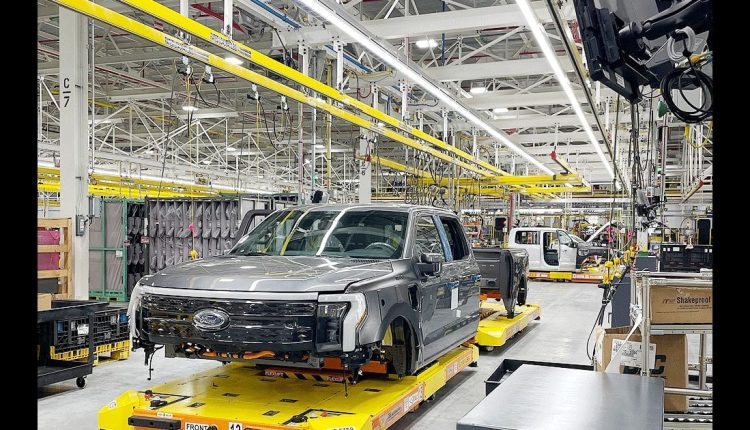Federal policy must prioritize auto workers’ job quality and fair compensation for a successful transition to electrification, panelists said at the Federal Reserve Bank of Chicago’s 29th annual automotive insights symposium Thursday.
“The green transition will not be possible… without strong and sustained political support,” said Adam Hersh, senior economist at the Economic Policy Institute, said at the event in Detroit. “That’s why it’s so important that we’re focusing on the quality and the quantity of the jobs that can be created.”
Employers know the cost of raising wages, but they don’t often measure the benefits of raising wages, said Susan Helper, senior advisor for industrial strategy in the White House office of management and budget.
“There’s a real reason why you want to have a skilled workforce,” she said. “In workforce, like other commodities, you get what you pay for.”
Electric vehicle sales made up 5.9 percent of new light-vehicle sales in 2022, a 57 percent jump over 2021, according to the Automotive News Research & Data Center. As automakers transition to selling mostly EVs in the U.S., that share will continue to rise, and the automotive workforce will have to evolve.
More labor hours
Battery-electric vehicles could create more labor hours than internal-combustion vehicles, Turner Cotterman, an associate at McKinsey & Co., said as he presented part of his Carnegie Mellon University PhD dissertation, independent of McKinsey. But the majority of those hours were dedicated to battery cell manufacturing, rather than the module and pack assembly that most line workers handle, he said.
“If we want to maximize the amount of available labor hours for the manufacturing workforce, it’s important that these gigafactories going up not only do module pack assembly but also do cell manufacturing,” he said.
Otherwise, that labor will take place in South Korea, Japan or China, nations that already have cell production expertise, he said.
More software jobs will also be necessary with the EV transition, said Anna Stefanopoulou, a mechanical engineering and manufacturing professor at the University of Michigan.
Automakers and suppliers need real-time data to understand the health of the battery, its resale value and its potential for repurposing and recycling, she said. Each of those metrics rely on software, data and controls in battery management, she said.
Ensuring job quality
On the plant floor, some of the keys to job quality are fair wages and labor representation, panelists said.
Higher wages translate to a more experienced, lower turnover workforce, said Karla Walter, senior director of employment policy, Center for American Progress.
“You get workers who stick around on the job, who have higher levels of ability to innovate and make work processes stronger, who then are also translating to projects being delivered on time and at a better value for the end user,” she said.
The Biden administration has focused on regulations and guidance to govern tax incentives and subsidies that will help fund the EV transition. But the government also needs to work with worker and environmental advocates to ensure the companies create quality jobs, Walker said.
Job quality for EV workers will be determined by a number of factors, including the ability to unionize and the level of EV demand, said Betony Jones, director of the office of energy jobs at the U.S. Department of Energy.
As automakers begin to scale EVs, workers’ skill development will give the U.S. the edge it needs to be a top contender in EV manufacturing, she said.
Workers, job creation, economic development, national security and domestic supply chain development have been a large part of recent climate policies, she said.
“We will win on climate because this will work for working people,” said Jones. “This will create business opportunity. This will be a boon to the American economy.”


